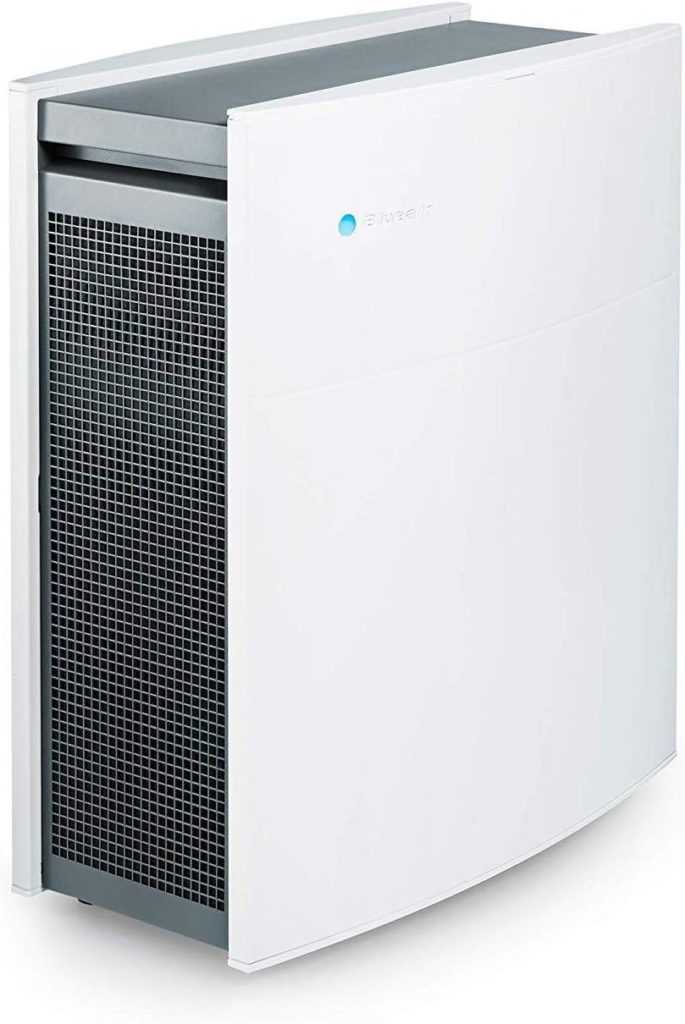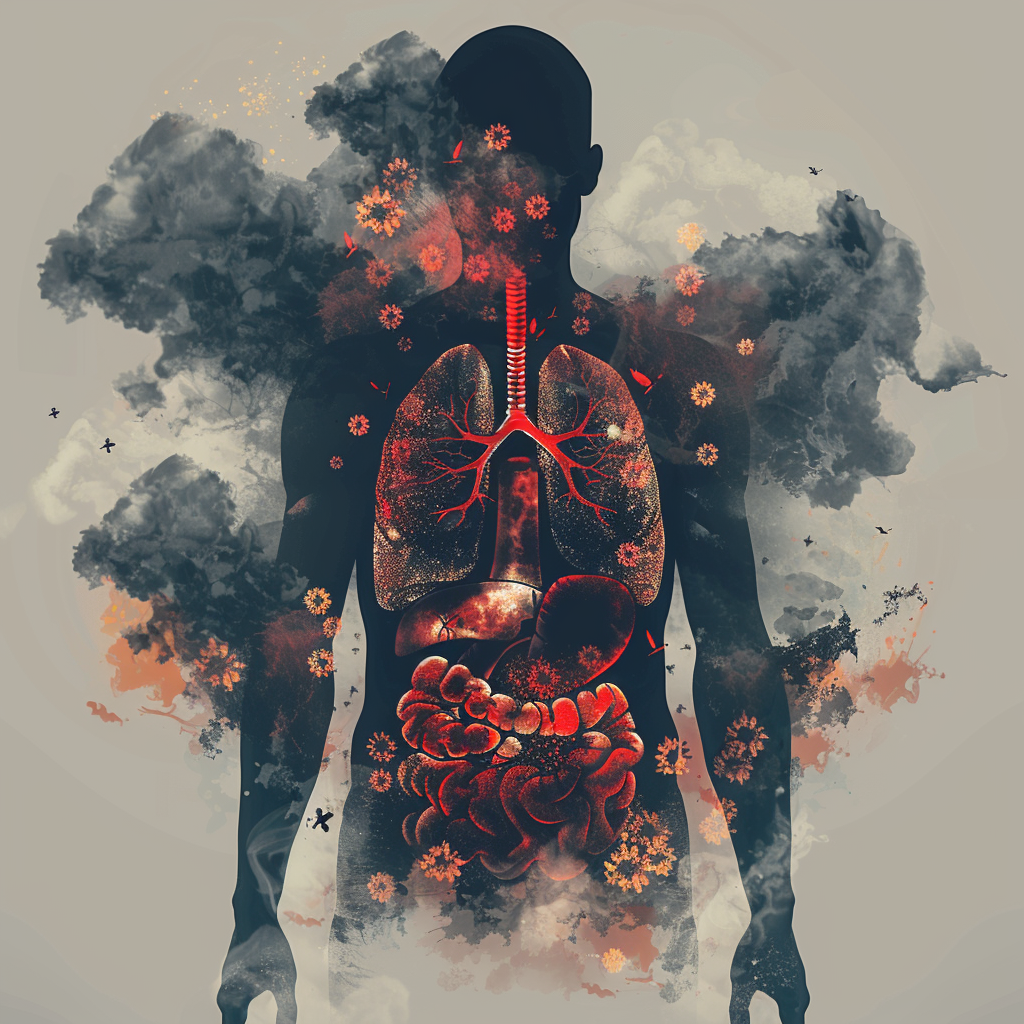As wildfires become increasingly frequent, the threat they pose extends far beyond the immediate danger of flames. Wildfire smoke is a significant health hazard, affecting millions of people each year. But what are the effects of wildfire smoke on our health, both in the short term and long term? This article explores these impacts and provides essential prevention strategies to protect yourself and your loved ones.
What Are The Short-Term Effects of Wildfire Smoke?
1. Respiratory Issues
Wildfire smoke is a complex mixture of gases and fine particles that can easily infiltrate the respiratory system. In the short term, exposure to this smoke can lead to coughing, throat irritation, shortness of breath, and chest pain. For individuals with pre-existing respiratory conditions such as asthma or chronic obstructive pulmonary disease (COPD), these symptoms can be particularly severe.
2. Eye Irritation
The small particles in wildfire smoke can irritate the eyes, leading to redness, itching, and excessive watering. In some cases, this irritation can cause temporary vision problems, making it uncomfortable and challenging to carry out daily activities.
3. Headaches and Fatigue
Many people exposed to wildfire smoke report experiencing headaches and general fatigue. The fine particulate matter (PM2.5) in the air is a significant contributor to these symptoms, especially for those sensitive to changes in air quality.
4. Worsening of Heart Conditions
Individuals with heart disease are at a higher risk when exposed to wildfire smoke. The pollutants in the smoke can exacerbate symptoms like palpitations and shortness of breath, potentially leading to more severe outcomes such as heart attacks.
5. Allergic Reactions
Wildfire smoke can also trigger allergic reactions in sensitive individuals. Symptoms may include sneezing, runny nose, and sinus congestion, making it difficult to breathe and function normally.
What Are The Long-Term Effects of Wildfire Smoke?
1. Chronic Respiratory Conditions
Prolonged exposure to wildfire smoke can lead to the development or worsening of chronic respiratory conditions. Asthma, bronchitis, and COPD are among the most common illnesses linked to long-term exposure, with some individuals experiencing reduced lung function over time.
2. Cardiovascular Problems
The fine particles in wildfire smoke, particularly PM2.5, are associated with increased risks of cardiovascular diseases. Over time, exposure can lead to hypertension, heart attacks, strokes, and even atherosclerosis (hardening of the arteries).
3. Impaired Immune Function
Long-term exposure to wildfire smoke can weaken the immune system, making individuals more susceptible to infections and diseases. The constant assault on the respiratory system can strain the body’s defences, leading to increased illness frequency.
4. Increased Cancer Risk
Wildfire smoke contains carcinogenic compounds like polycyclic aromatic hydrocarbons (PAHs), which are linked to an increased risk of lung cancer and other cancers. Regular exposure, especially in areas prone to wildfires, significantly raises these risks.
5. Neurological Effects
Emerging research suggests that prolonged exposure to air pollution, including wildfire smoke, may contribute to cognitive decline and increase the risk of neurological disorders like dementia and Alzheimer’s disease.
6. Psychological Stress
Living in areas frequently affected by wildfires can cause long-term psychological stress and anxiety. The constant threat of fires and the health risks associated with smoke exposure can lead to mental health challenges, including post-traumatic stress disorder (PTSD).
7. Impact on Pregnancy
Pregnant women exposed to wildfire smoke over extended periods may face increased risks of preterm birth, low birth weight, and developmental issues in their children. The harmful particles and chemicals in the smoke can significantly impact maternal and fetal health.
Prevention Strategies for Reducing the Effects of Wildfire Smoke
What Are the Effects of Wildfire Smoke on your health, and how can you minimize them? Here are some practical strategies:
1. Reducing Exposure Indoors
- Air Filtration: Invest in HEPA filters and air purifiers to remove harmful particles from your indoor air.
- Sealing Your Home: Keep windows and doors closed, and seal gaps to prevent smoke from entering your living spaces.
- Using Air Conditioning: If you have an air conditioner, set it to recirculate indoor air to avoid bringing in smoke from outside.
2. Reducing Exposure Outdoors
- Limiting Outdoor Activities: Stay indoors as much as possible during high-smoke periods, especially during exercise or strenuous activities.
- Using N95 Masks: Wear N95 masks when you need to be outside to filter out harmful particles from the smoke.
- Monitoring Air Quality: Use apps and websites to stay informed about local air quality levels and take action accordingly.
3. Health Precautions
- Medication Management: If you have respiratory or cardiovascular conditions, ensure you have access to necessary medications and manage them carefully.
- Hydration and Nutrition: Staying hydrated and eating a healthy diet can help support your immune system and reduce the impact of smoke exposure.
- Emergency Plans: Prepare for potential evacuations or health emergencies by having a plan in place and an emergency kit ready.



Long-Term Prevention and Preparedness
What Are the Effects of Wildfire Smoke in the long term, and how can we prevent them?
1. Community and Government Efforts
Community-level efforts and government policies play a crucial role in reducing wildfire risks. Controlled burns, forest management, and public awareness campaigns are essential in preventing large-scale wildfires and their associated health hazards.
2. Personal Preparedness
- Emergency Kits: Have an emergency kit ready with essentials like water, food, masks, and first aid supplies.
- Home Preparation: Create defensible space around your home by removing flammable materials and fireproofing your property.
- Health Monitoring: Regular check-ups, especially for vulnerable populations, can help catch early signs of smoke-related health issues.
Understanding what are the effects of wildfire smoke on your health is crucial in today’s world. By being aware of the short-term and long-term impacts and implementing prevention strategies, you can protect yourself and your loved ones from the harmful effects of wildfire smoke. Stay informed, prepared, and proactive in minimizing exposure to ensure a healthier future.
Frequently Asked Questions
You can monitor air quality using apps like AirNow or websites that provide real-time updates on PM2.5 levels. If the Air Quality Index (AQI) is over 100, especially for sensitive groups, it’s advisable to stay indoors and take precautions.
Yes, air purifiers with HEPA filters are effective at removing fine particles from indoor air, significantly improving air quality and reducing exposure to harmful smoke particles.
Generally, you don’t need to wear a mask indoors if your home is properly sealed and you’re using air purifiers. However, if there’s significant smoke infiltration, wearing an N95 mask indoors can help reduce inhalation of harmful particles.





